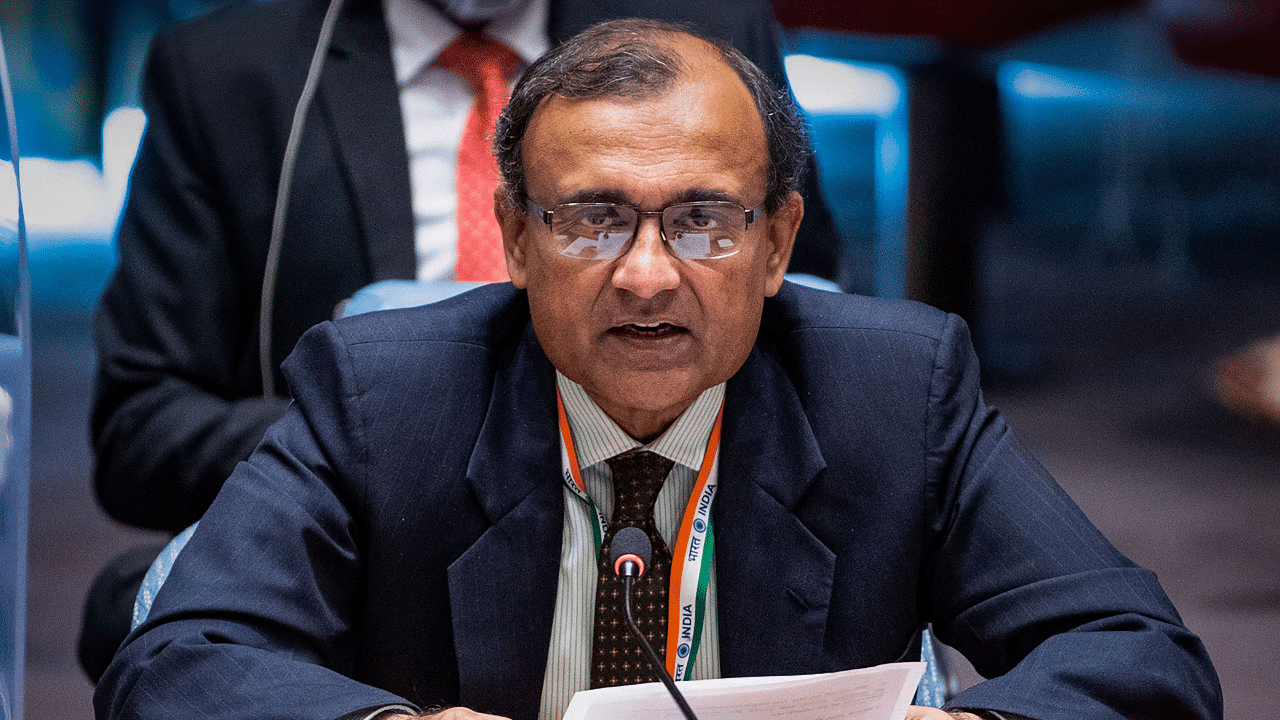
India is ready to send food grains and medicine to Afghanistan and willing to coordinate with “other stakeholders” to ensure expeditious delivery of humanitarian assistance to the war-ravaged country, New Delhi’s envoy to the United Nations, T S Tirumurti, has told the Security Council.
Though it has not yet recognized the interim government the Taliban has set up in Kabul, India has formally conveyed to the UN Security Council its willingness to send humanitarian aid for the people of Afghanistan.
New Delhi also subtly sent out a message to Islamabad nudging Prime Minister Imran Khan's government to act fast on the proposal of allowing India to send humanitarian aid to Afghanistan through Pakistan.
“India is once again ready to deliver urgent humanitarian aid consisting of food grains and medicines to the people of Afghanistan,” Tirumurti said as he addressed the Security Council during an Open Briefing on United Nations Assistance Mission in Afghanistan on Thursday. “India remains steadfast in its commitment towards humanitarian assistance to the people of Afghanistan.”
New Delhi has been in talks with Islamabad over the past few weeks, seeking permission for sending humanitarian aid to Afghanistan through Pakistan. The United Nations World Food Programme (WFP) has also been discussing with the Khan Government in Islamabad the possibility of the consignment of wheat donated by India being transported to Afghanistan through Pakistan.
Khan's office in Islamabad recently stated that his government would “favourably consider” the request received from the “brothers” in Kabul for transport of wheat from India through Pakistan to Afghanistan.
A source in New Delhi said that Islamabad was dilly-dallying on finalizing the modalities of transporting humanitarian aid from India to Afghanistan through Pakistan.
“We call on the international community and countries in the region to come together, rising above partisan interests,” Tirumurti told the UN Security Council. “As the largest regional development partner of Afghanistan, India is willing to coordinate with other stakeholders to work towards enabling expeditious provision of much needed assistance to the people of Afghanistan.”
The issue was discussed when National Security Advisor, Ajit Doval, hosted his counterparts from Iran, Russia and the seven other Central Asian nations in New Delhi on November 10 for a discussion on the situation in Afghanistan. Doval and Foreign Secretary Harsh Shringla touched upon it when the new Special Representative of the United States for Afghanistan, Thomas West, called on them in New Delhi on Tuesday.
“India has supported the call of the international community that access to humanitarian assistance for Afghanistan should be direct and without any hindrance,” Tirumurti told the UN Security Council. He said that humanitarian assistance should be based on the principles of neutrality, impartiality, and independence and disbursement of the aid should be non-discriminatory and accessible to all, irrespective of ethnicity, religion or political belief. “In particular,” he added, “the assistance should reach the most vulnerable first – including women, children and minorities”.
India invested over $3 billion for reconstruction of Afghanistan over the past 20 years. Pakistan has always been jittery about India's role in Afghanistan. The Taliban's return to power in Kabul however has given Pakistan a “strategic depth” in Afghanistan and an edge against India in the region.
New Delhi, however, has been reaching out to the Taliban, but refused to recognize its interim government in Kabul as it was not inclusive.
Even before the Taliban took over Kabul, a humanitarian crisis was already unfolding in Afghanistan, as a result of continued conflict, severe drought, Covid-19 pandemic, failing health system and economic slowdown. It worsened after the Taliban returned to power in Afghanistan.
The WFP estimated that one in every three Afghans had already been facing severe hunger and now 95 percent of families were not consuming enough food. The conflict-ravaged country is on the brink of economic collapse, with the local currency at an all-time low and food prices on the rise.
“Acute malnutrition is above emergency thresholds in 27 out of 34 provinces, and is expected to worsen, with almost half of children under five and a quarter of pregnant and breastfeeding women needing life-saving nutrition support in the next 12 months,” the WFP stated in a global appeal for support for Afghanistan.
It estimated that it would urgently need US $ 200 million to help people in need across Afghanistan between now and the end of the year.
